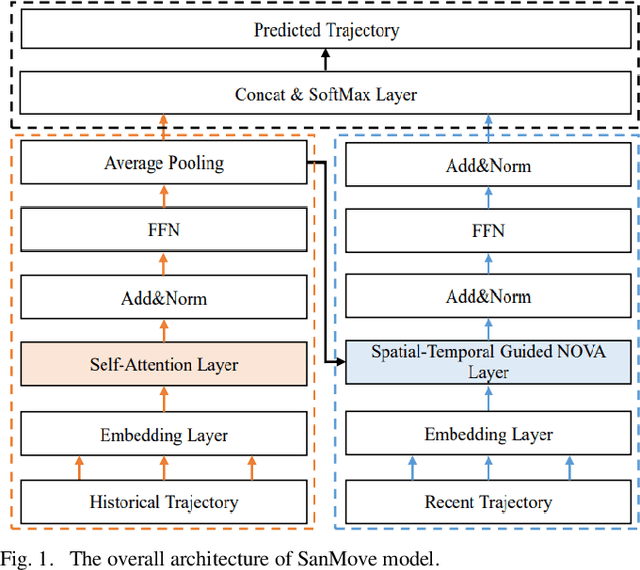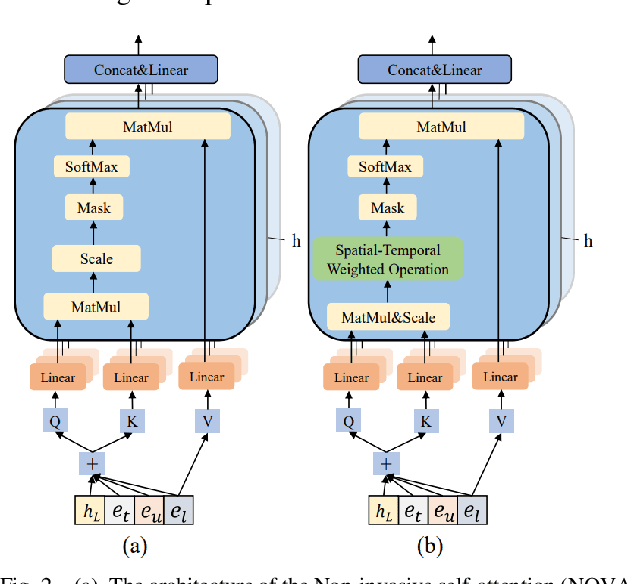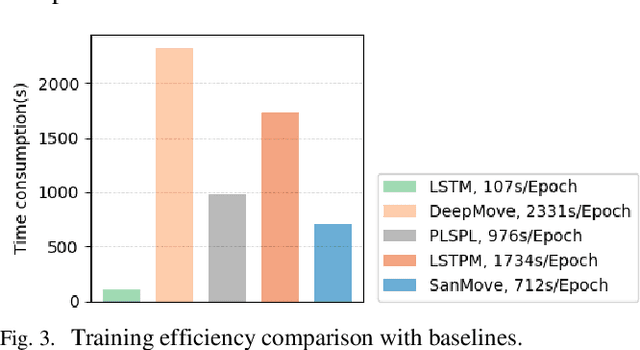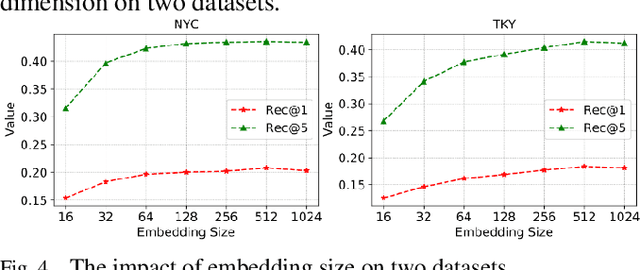SanMove: Next Location Recommendation via Self-Attention Network
Paper and Code
Dec 15, 2021



Currently, next location recommendation plays a vital role in location-based social network applications and services. Although many methods have been proposed to solve this problem, three important challenges have not been well addressed so far: (1) most existing methods are based on recurrent network, which is time-consuming to train long sequences due to not allowing for full parallelism; (2) personalized preferences generally are not considered reasonably; (3) existing methods rarely systematically studied how to efficiently utilize various auxiliary information (e.g., user ID and timestamp) in trajectory data and the spatio-temporal relations among non-consecutive locations. To address the above challenges, we propose a novel method named SanMove, a self-attention network based model, to predict the next location via capturing the long- and short-term mobility patterns of users. Specifically, SanMove introduces a long-term preference learning module, and it uses a self-attention module to capture the users long-term mobility pattern which can represent personalized location preferences of users. Meanwhile, SanMove uses a spatial-temporal guided non-invasive self-attention (STNOVA) to exploit auxiliary information to learn short-term preferences. We evaluate SanMove with two real-world datasets, and demonstrate SanMove is not only faster than the state-of-the-art RNN-based predict model but also outperforms the baselines for next location prediction.
 Add to Chrome
Add to Chrome Add to Firefox
Add to Firefox Add to Edge
Add to Edge